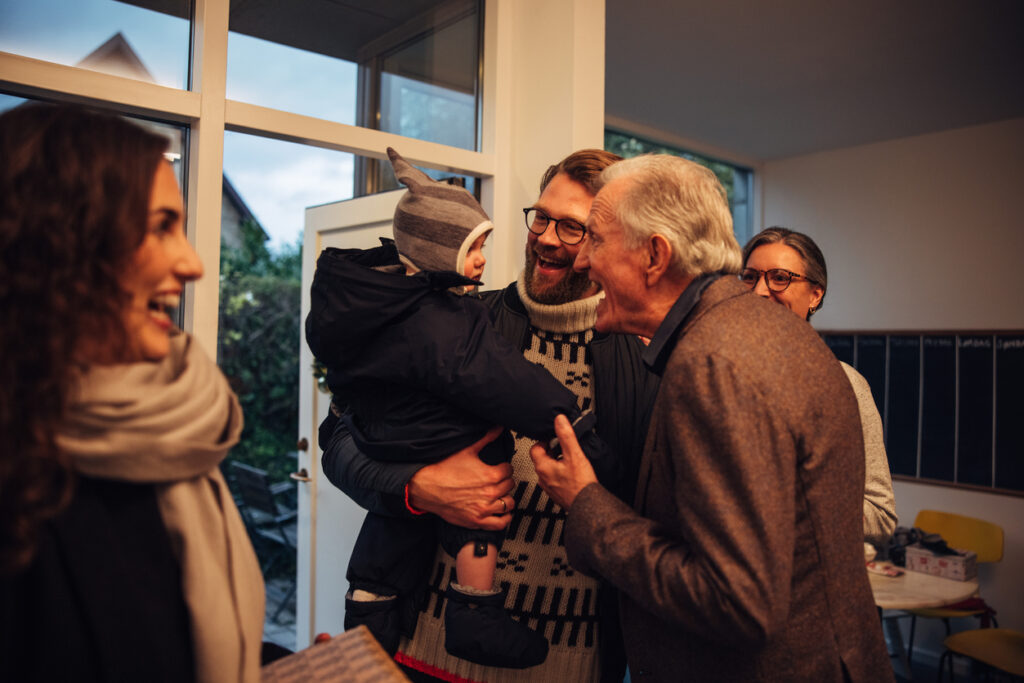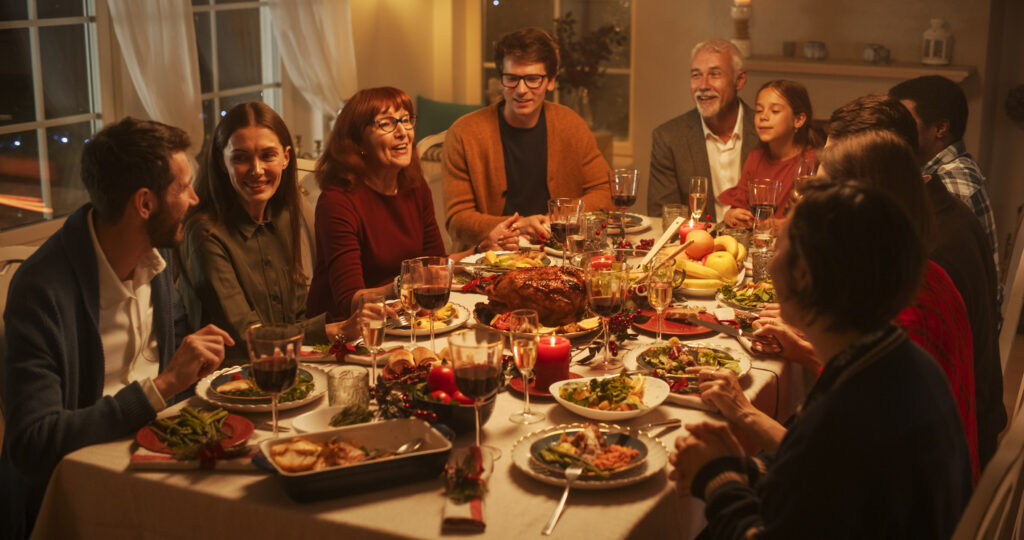Finding your path forward when the shared journey continues alone.

Living a long life is often celebrated as an achievement, yet there’s a bittersweet reality that comes with aging that’s rarely discussed openly: the profound experience of outliving those who once filled your days with connection and meaning. As birthdays accumulate, so too might the empty spaces at your table where loved ones once sat.
This gradual thinning of your social circle creates unique emotional challenges that can feel impossible to articulate to those who haven’t experienced them. The grief becomes cumulative, the loneliness more complex, and the search for meaning more urgent. Yet within this struggle lies the opportunity for remarkable resilience and even unexpected growth.
1. Grief becomes a familiar companion rather than a temporary visitor in your emotional landscape.

The experience of loss transforms when it becomes sequential rather than occasional. While younger people might face significant losses intermittently, giving them time to process and integrate each experience, older adults often find grief becomes layered as losses accumulate in closer succession, according to the National Library of Medicine. This creates a complex emotional terrain where new losses trigger memories of previous ones, amplifying the impact.
The brain’s capacity to manage this cumulative grief requires different strategies than those typically offered in grief support. Many find that rather than “moving on” from loss, they must learn to incorporate these experiences into an expanding emotional vocabulary that acknowledges both sorrow and continuing bonds with those who’ve died.
This might include creating personal rituals that honor multiple loved ones, maintaining one-sided conversations with those who’ve passed, or finding comfort in objects or places that hold shared memories. The wisdom that emerges from navigating this terrain often includes a deeper appreciation for the temporary nature of all relationships and a heightened ability to cherish those that remain.
2. Your personal history becomes increasingly held in sole custody as those who shared your past disappear.

There’s a special intimacy in shared history – the friend who remembers your childhood neighborhood, the sibling who recalls family holiday traditions, the spouse who knows the story behind every scar. As these co-holders of your past die, you become the sole curator of these memories, creating an unexpected isolation even in your most cherished recollections. The validation and richness that comes from reminiscing with someone who “was there” gradually diminishes.
This sole custodianship of memory creates both responsibility and opportunity. Tanya Evans, writing for History Workshop, explores how many find value in becoming family historians, documenting stories and experiences for younger generations through writing, recording, or creating memory books. Others discover that sharing these stories with new friends, even without the shared context, helps keep memories alive while creating deeper connections.
Older adults can find unexpected comfort in connecting with people from their past through social media or hometown associations, rekindling relationships with those who share fragments of their history. The process of intentionally preserving and sharing your unique historical perspective can transform this loss into a meaningful legacy project that benefits both yourself and others.
3. Social invitations diminish not just through death but as peers face mobility and health limitations.

The social calendar that once required careful management to balance multiple commitments often becomes increasingly empty, not only because friends have died but because many who remain alive face health challenges that limit their ability to socialize. The spontaneous dinner plans, travel companions, and reliable phone conversations that structured social connection become less available, requiring new approaches to meaningful interaction.
Adapting to this changing social landscape requires both flexibility and initiative, as a social life is crucially important for older adults as research validates. Many find success in adjusting expectations around socializing – perhaps meeting for morning coffee rather than evening events, planning shorter but more frequent visits, or becoming comfortable with technology that allows virtual connection when in-person gatherings aren’t possible.
4. Family roles shift dramatically as you become the oldest generation in your lineage.

Moving into the position of family elder brings both ceremonial changes and practical responsibilities that can feel overwhelming without the guidance of those who previously held these roles. Whether it’s maintaining family traditions, mediating conflicts, or simply embodying the wisdom that younger generations seek during challenging times, becoming the “oldest living” member of your family fundamentally changes your identity within the family system.
This role transition requires finding balance between honoring family history and adapting traditions to current realities. Many elders find meaning in consciously deciding which family practices to preserve and which to allow to evolve or end. Recording family recipes, stories, or wisdom becomes not just personally fulfilling but a service to future generations. Some discover that this elder role provides unexpected purpose, particularly when younger family members seek their perspective or presence at significant life events.
However, boundaries become equally important, as family expectations can sometimes exceed an elder’s energy or capacity. Learning to delegate family responsibilities helps create sustainability in this important role while preparing the next generation for their future responsibilities.
5. Decision-making becomes more isolated without trusted confidants who truly knew you when younger.

The partners, siblings, and lifelong friends who understood your values, preferences, and personal history often served as crucial sounding boards for important decisions. Their intimate knowledge of your authentic self provided guidance that newer relationships, however loving, cannot fully replicate. This loss of witnesses to your life journey can make even simple choices feel heavier without the validation and perspective these relationships provided.
Adapting to more solitary decision-making often involves developing stronger internal guidance systems. Many find value in explicitly documenting their values and priorities, creating personal manifestos that serve as touchstones when facing difficult choices. Others discover that thoughtfully cultivated newer friendships, while different from lifelong bonds, can provide valuable perspective when approached with vulnerability and context about your history and values.
6. Cultural references and shared generational touchstones gradually disappear from everyday conversation.

The shorthand communication that comes from shared cultural experience – references to historical events you lived through, music that defined your generation, or social customs that shaped your formative years – becomes increasingly rare in everyday interaction. This subtle form of isolation creates a sense of being from “another time” that can make even casual conversations require more explanation and context than they once did.
Finding spaces where generational references are understood becomes increasingly valuable with age. Senior centers, alumni groups, or special interest communities often provide opportunities for conversation where contextual explanations aren’t constantly needed. Many find joy in intergenerational exchange programs that intentionally create space for sharing historical perspectives and cultural memories with younger people eager to learn.
7. Health problems become increasingly difficult to navigate without peer support from those facing similar challenges.

The friends who once compared notes about parenting or career challenges would likely have become natural allies in navigating health changes and medical decisions. Their absence leaves many elders feeling isolated in their health experiences, unsure if their symptoms are normal and lacking confidants who truly understand their concerns without fear or pity. Adult children, while often supportive, bring different perspectives and emotional responses to their parent’s health than same-generation peers would provide.
Creating alternative support systems around health becomes essential when peer networks diminish. Patient advocacy groups, condition-specific support communities, and senior health education programs provide both information and connection with others navigating similar terrain. Many find value in cultivating relationships with trusted healthcare providers who take time to understand their full history and preferences. Online forums specifically for older adults with health concerns create accessible support regardless of mobility limitations.
8. Financial concerns take on different dimensions when you’ve outlived those who knew your full financial history.

Managing finances without the partners or peers who understood your complete financial journey creates practical challenges beyond the emotional impact. The spouse who remembered why certain investments were made, the friend who could remind you how you navigated previous economic downturns, or the sibling who understood family financial history provided context and perspective that informed better decisions. Their absence can make financial management feel more precarious and isolated.
Creating systems to compensate for this lost financial context becomes important for maintaining autonomy and security. Many find value in working with financial advisors who take time to understand their complete financial history and values rather than focusing solely on current assets. Documenting financial decisions, including the reasoning behind them, helps maintain consistency when memory might otherwise create gaps.
9. Housing decisions become more complex without the perspective of those who knew your lifestyle preferences.

Deciding whether to age in place, downsize, move near adult children, or consider retirement communities involves countless nuanced factors beyond just finances and physical needs. The absence of partners or lifelong friends who understood your attachment to certain spaces, your need for privacy or community, and your genuine lifestyle priorities removes an important decision-making lens from these significant choices. Adult children, while well-meaning, may prioritize their perception of your needs over preferences they don’t fully understand.
Approaching housing decisions with clear self-knowledge becomes essential when external perspective is limited. Many find benefit in creating explicit lists of non-negotiable lifestyle priorities before exploring housing options. Others discover value in “test driving” potential living situations through short-term stays before making permanent changes. Working with senior move managers or aging life care professionals who specialize in understanding the emotional as well as practical aspects of late-life transitions provides objective guidance informed by experience with similar situations.
10. Holiday traditions and celebrations require complete reinvention when their previous participants are gone.

The empty chairs at holiday gatherings represent more than missing loved ones – they often signify lost traditions, recipes, roles, and rhythms that made celebrations meaningful. The absence of those who previously hosted gatherings, prepared special dishes, led ceremonies, or simply contributed their unique energy to these occasions creates both practical voids and emotional challenges that can make important dates on the calendar sources of dread rather than anticipation.
Reclaiming joy in celebrations requires both honoring what’s lost and intentionally creating new meaning. Many find comfort in incorporating remembrance rituals into celebrations – perhaps lighting candles for absent loved ones, sharing stories about them, or including their favorite foods or music. Others discover freedom in completely reimagining traditions, perhaps traveling during holidays, volunteering with organizations that serve those without family, or creating new celebration patterns that fit current realities rather than attempting to replicate the past.
11. The fundamental questioning of life’s meaning intensifies when those who shared your life journey can no longer affirm its value.

Perhaps the most profound impact of outliving loved ones is the existential challenge it presents. The witnesses to your life accomplishments, the keepers of your stories, and those who valued your unique contribution to their lives provided ongoing affirmation that your existence mattered. Their absence can trigger deep questioning about legacy, purpose, and the ultimate meaning of a life that increasingly exists in memories others don’t share.
Finding meaning in this final life stage requires developing new perspectives on value and legacy. Many discover purpose in becoming wisdom-keepers who consciously share life lessons with younger generations, whether family members or broader community. Others find renewed meaning through life review processes – writing memoirs, creating ethical wills, or working with end-of-life doulas to articulate values and beliefs. Creative expression often becomes increasingly important, whether through art, music, writing, or other forms that externalize internal experience.
